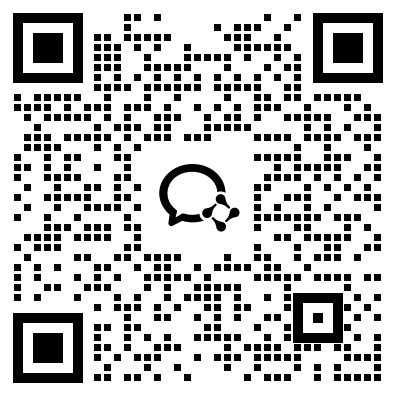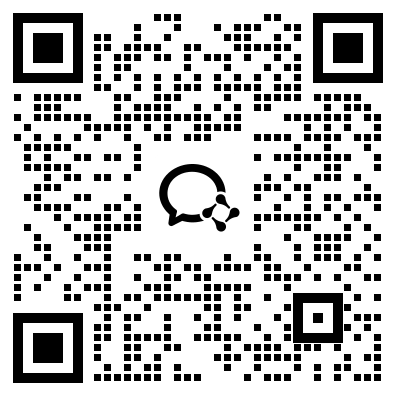特惠-26考研冲刺
特惠-27考研课
双证-在职硕士
免联考-同等学力
复试分数线
26复试全面指导
模拟复试面试
26考研-全套真题
26考研估分
保研-路线图
27考研-智能择校
27考研-英语测评
27考研-新大纲对比
热门-计算机择校

扫码加入训练营
牢记核心词
学习得礼盒
同等学力英语也是考试的重要科目,想要在实际的考试中收获到高分成绩,大家在日常的备考复习中,需要对这个科目进行重点的复习。那么具体的同等学力英语应该如何备考?小编为大家整理了“2023同等学力英语语法知识总结1”,供大家参考。
2023同等学力英语语法知识总结1
动词
( 1 )时态、语态
1 )以下几类动词一般不能用于进行时,同样不用于完成进行时。
a .表示感知的动词: hear, feel, notice, recognize, see, taste, smell 。
b . 表示意愿情感的动词: desire, dislike, forgive, hate, like, love, prefer, refuse, want, wish, fear, love 。
c .表示思考看法的动词: believe, doubt, expect, forget, hope, feel, mean, know, agree, realize, mind , recall, recollect , remember, trust, suppose 。
d .表示所有 占有 的动词: belong to , owe , own , possess , hold (容纳)。
e .其他动词: cost , appear , concern , contain , consist , deserve , matter , seem 。
2 )不用 will/shall 表达将来时的形式。
a . be going to 表示现在的打算和意图。
b . arrive, come, drive, go, leave, retire, return, set off, start, take off 等表示移位的动词的进行时表示按计划肯定要发生的将来动作。
c . be to(do) 表示安排、计划、决定、命令或注定要发生的事。
d . be about to (do); be on the point of (doing) 表示“马上就要”,一般不与表示将来的时间状语连用。
e . be, begin, come, depart, get off, go, leave, return, start 的一般现在时表示按日历或时刻表要 发生的将来 动作 或事件。
f .在 时间 、条件、让 步从句中,一般现在时代替将来时。
g . 在 where/wherever 引导的地点从句和 whether 引导的让步从句中,一般现在时代替将来时。
3 )与完成时连用的句型和时间状语。
a . by/between/up to/till+ 过去时间, since , by the time/when+ 谓语动词是一般过去时的从句,主 句用过去完成时。
b . by + 将来时间、 by the time/when+ 谓语动词是一般现在时的从句,主句用将来完成时。
c . by now, since + 过去时间, in/during/for the past/last few (或具体数字) years/days/months ,主句用现在完成时。
d .在 It is the+ 序数词 / 形容词最高级 +that 的定语从句中,谓语动词常用现在完成时。
e . 在 no sooner …than…, hardly/scarcely…when/before… 句型中,主句常用过去完成时。
f . 其他与完成时连用的时间状语: all this while, all this year, for some time, so far, already, before, just, long, yet 等。
4 )下列及物(短语)动词一般不用于被动语态。
contain, cost, enter, fit, have, hold (容纳), lack, last, own, possess, belong to, resemble, suit, wish, agree with, consist of, get to, keep track of, shake hands with, take part in, walk into, arrive at, reach (到达)
5 )接动名词时主动形式表示被动意义的动词。
bear, deserve, merit, need, require, want, demand
6 )后接副词时主动形式表示被动意义的动词。
wash , open , polish , wear , write , sell , pull , push , lock , clean , cut , peel , spoil , read
例: The book sells well. 这本书卖得很好。
( 2 )非谓语动词
1 )常接动名词做宾语的动词。
acknowledge, advocate, anticipate, appreciate, advise, avoid, admit, confess, consider, defend, delay, deny, dislike, enjoy, escape, excuse, fancy, favor, finish, forgive, imagine, include, involve, justify, keep mind, miss, mention, pardon, practice, postpone, permit, report, resent, resume, recall, recollect, risk, resist, suggest, tolerate
2 )常接不定式做宾语的动词。
agree, afford, aim, arrange, appear, ask, attempt, choose, claim, decide, desire, determine, expect, fail, guarantee, hope, endeavor, intend, long, mean, manage, offer, ought, plan, pledge, pretend, prepare, promise, proceed, prove, resolve, refuse, request, swear, tend, try, venture, wait, wish
3 )接不定式或动名词在意思上有区别的动词。
mean to do 想要(做某事) mean doing 意味(做某事)
propose to do 打算(做某事) propose doing 建议(做某事)
forget to do 忘记(要做的事) forget doing 忘记(已做的事)
remember to do 记得(要做某事) remember doing 记得(已做过的事)
regret to do (对将要做的事)遗憾 regret doing (对已做过的事)后悔
go on to do 继而(做另一件事) go on doing 继续(做原来的事)
stop to do 停下来去做另一件事(不定式作目的状语)
stop doing 停止正在做的事(不定式做宾语)
4 )不定式的习惯用法。
句型: cannot help but do; cannot but do
cannot choose but do; can do nothing but do
have no choice/alternative but to do
5 )动名词的习惯用法。
句型: be busy/active doing sth.
have difficulty/trouble/problem doing sth.
It´s no good/use/picnic doing sth.
have a good/terrible/difficult time doing sth.
spend/waste time doing sth.
There is no point/sense/harm doing sth.
cannot help doing sth.
6 )下列动词短语中的 to 是介词,后面应接动名词或名词。
object to, resort to, react to, contribute to, look forward to, be accustomed to, be committed to, be exposed to, be subjected to, be devoted to, be dedicated to, be opposed to, be reconciled to, be contrary to
( 3 )虚拟语气
1 ) that 宾语从句需用( should+ )动词原形表示虚拟的动词。
desire, advise, recommend, command, direct, order, ask, demand, request, require, insist, maintain, move, propose, prefer, suggest, urge, vote, move
应当注意的是,当 suggest 、 insist 等词不再表示“建议”或“坚持要求”的含义时,其后面的从句不再用虚拟语气。例如:
His look suggested that he wasn´t telling the truth.
He insisted that he was right.
2 )下列名词后接 that 同位语从句或表语从句时,从句谓语需用( should+ )动词原形表示虚拟。
insistence, preference, recommendation, suggestion, proposal, motion, desire, requirement, request, order, necessity, regulation, rule, resolution, understanding
3 )下列形容词或分词做表语时, that 主语从句需用( should+ )动词原形表示虚拟。
advisable, desirable, insistent, preferable, urgent, appropriate, compulsory, crucial, essential, imperative, important, natural, necessary, obligatory, possible, probable, proper, strange, vital, advised, arranged, commanded, demanded, desired, ordered, proposed, recommended, requested, required, suggested
4 )含蓄虚拟条件句。
a .介词 with, without, under, in but for 等表示含蓄条件。例如:
But for your help, they couldn´t have succeeded.
She wasn´t feeling well. Otherwise, she wouldn´t have left the meeting so early.
b .连词 but, or, or else ,副词 otherwise, unfortunately 等表示转折假设。
c . intended/meant/hoped/wished/planned 或 was/were+ 不定式完成式或 had intended/me- ant/planned/hoped/wished+ 不定式一般式暗示虚拟语气。
d .情态动词完成式可以表示虚拟含义。
5 )在非真实条件句中,有时从句的动词所表示的动作和主句的动词所表示的动作并不同时发生,这样的条件句中使用的虚拟式称为混合虚拟式。其构成视具体情况而定。例如:
If I had taken my raincoat when I came out this morning, I would not be wet now.
If I were you, I wouldn´t have missed the film last night.
6 )引导非真实条件从句的连词 if 在正式文体中有时可以省去, were , had , should 等非行 为动词这时应提到从句句首。例如:
If I were you, I wouldn´t feel sorry.
→ Were I you, I wouldn´t feel sorry.
7 )虚拟式可用于 wish 后的宾语从句中,表示与事实相反的愿望。其表达形式一般是将谓语动词提前一个时态。例如:
I wish I had been to the concert last night.
I wish he would forgive me.
8 ) It´s (high, about) time that… 的句型要求用虚拟式,表示应该做还没有做的事。其表达形式一般是谓语动词使用过去时态。例如:
It´s high time that he stopped smoking.
It´s about time that we took our leave.
9 )在 I would rather 后的句子中,动词也要求用虚拟式,表示某人的愿望。其表达形式一般是将谓语动词提前一个时态。例如:
I´d rather you left tomorrow instead of today.
I´d rather he hadn´t done anything like that.
10 )在由 as if, as though 引导的方式状语从句中,表示和现在事实相反或对现在情况有所怀疑,或表示与主句谓语动词同时或其后的假设情况时,从句中谓语动词用过去时。表示过去想像中的动作或情况或表示在主句谓语动词所表示时间之前的假设情况,从句用过去完成时。如果表示的情况很可能发生或是事实,则用陈述语气。例如:
She looks as if she knew all about it.
They talked as though they had got acquainted with each other for years.
11 )在 if only 引起的感叹句中,用谓语动词的一般过去时表示与现在的事实相反的情况,用过去完成时表示与过去事实相反的情况。例如:
If only he knew our telephone number!
12 )在 lest , for fear that , in case 等词引导的从句中,谓语动词用 should+ 动词原形表示虚拟, should 一词也可以省略。例如:
Grown people should never say or do anything wrong before children, lest they(should) set them a bad example.
( 4 )情态动词
1 )情态动词后面加不定式的完成式,即“情态动词 +have+done ”,用来表示过去时间的各种情态。用法如下:
情态动词用在句子中表示对过去的行为或过去的动作的推测、评论或判断,表示某种事情“一定”、“可能”或“应该”已经完成或发生了。考生应该牢记不同的情态动词与不定式完成式连用所表达的意思。如: wouldn´t have done sth. (本来不会……), should/ought to have done sth. (本应 / 应该已经……), shouldn´t/oughtn´t to have done sth. (本不该……), would have done sth. (本来会……), can/could/may/might have done sth. (可能已经 / 也许已经……), must have done sth. (一定 / 准是……), can´t/couldn´t have done sth. (一定没 / 准没有……),“ needn´t + 完成式”表示对已经做过的事感到不必要。
例: I could have arrived a little earlier, but I met a friend of mine on the way.
The children must have got terrified in last night´s earthquake.
Since they aren´t answering the telephone, they must have left.
You should have put the milk in the ice-box; I expect it had become undrinkable by now.
You needn´t have told her again because she has a good memory.
You needn´t have interrupted the class to tell me that; you could have come up to me afterwards.
2 )情态动词后面加进行时,即“情态动词 +be+doing ”,表示“应当正在……”、“想必 / 一定正在……”、“可能 / 也许正在……”等意思。情态动词后面加上完成进行式,即“情态动词 +have been doing ”,表示“应当一直在……”、“想必一直在……”等意思。
例: He shouldn´t be watching TV now. It´s time for class.
The president of our company isn´t here. He may be interviewing candidates for the post of sales manager at the moment.
He said he could drink a bottle of whisky. He must be joking.
They must have been working on their thesis.
3 )情态动词后面用被动语态,在很多情况下,动词的主语是动作的承担者,因此,情态动词后面就要跟动词的被动语态形式。
例: The Central Park can be seen from the top of this exclusive apartment building.
Many rare animals should be saved from extinction.
The girl must have been frightened by the thrilling movie in which there are some violent scenes.
以上就是为大家整理的“2023同等学力英语语法知识总结1”,希望大家可以更好的准备同等学力英语考试,在接下来的考试中取得更好的成绩!
本文关键字: 同等学力英语

 资料下载
资料下载
2014年-2025年考研历年真题汇总
发布时间:2024-04-25扫码添加【考研班主任】
即可领取资料包
考研大纲PDF电子版下载-历年(附解析)
发布时间:2024-04-25扫码添加【考研班主任】
即可领取资料包
2026年考研政数英备考资料zip压缩包
发布时间:2024-04-25扫码添加【考研班主任】
即可领取资料包
考研英语大纲词汇5500打印版(基础必备)
发布时间:2024-04-25扫码添加【考研班主任】
即可领取资料包
新东方在线考试模拟题【12套】
发布时间:2024-04-25扫码添加【考研班主任】
即可领取资料包
2026年考研专业课知识点总结
发布时间:2024-04-25扫码添加【考研班主任】
即可领取资料包
新东方考研资料下载地址
发布时间:2023-05-17新东方在线考研资料合集
下载方式:微信扫码,获取网盘链接

目录:
1.2013-2023年近10年政数英真题及解析PDF版(新东方)
2.2013-2023年专业课考试历年真题及解析PDF版
3.24考研复习备考资料大合集:大纲+备考资料+词汇书+考前押题+自命题
资料介绍:
1.2013-2023年近10年政数英真题及解析PDF版(新东方)
 、
、
2.2013-2023年专业课考试历年真题及解析PDF版


3.24考研复习备考资料大合集

3.24考研复习备考资料:考研大纲

3.24考研复习备考资料:政数英备考资料+自命题真题

------------------
考研备考过程中,尤其是专业课部分,参考往年的考试真题,对于我们的复习有更好的帮助。北京大学考研真题资料都有哪些?小编为大家进行了汇总。
北京大学考研真题资料-公共课

北京大学考研真题资料-专业课


以上就是关于“北京大学考研真题资料下载(历年汇总)”的整理,更多考研资料下载,请关注微信获取下载地址。
2024考研公共课必背知识点汇总
发布时间:2023-01-03扫码添加【考研班主任】
即可领取资料包
2013-2023考研历年真题汇总
发布时间:2023-01-03扫码添加【考研班主任】
即可领取资料包
考研英语大纲词汇(PDF可打印)
发布时间:2023-01-03扫码添加【考研班主任】
即可领取资料包
2024考研专业课知识点总结
发布时间:2023-01-03扫码添加【考研班主任】
即可领取资料包
2023考研政治 内部押题 PDF
发布时间:2022-11-16扫码添加【考研班主任】
即可领取资料包
徐涛:23考研预测六套卷
发布时间:2022-11-16扫码添加【考研班主任】
即可领取资料包
考研政数英冲刺资料最新整理
发布时间:2022-11-16扫码添加【考研班主任】
即可领取资料包
23考研答题卡模板打印版
发布时间:2022-11-16扫码添加【考研班主任】
即可领取资料包
2023考研大纲词汇5500PDF电子版
发布时间:2022-07-28扫码添加【考研班主任】
即可领取资料包
考研历年真题(公共课+专业课)
发布时间:2022-07-28扫码添加【考研班主任】
即可领取资料包
考研英语阅读100篇附解析及答案
发布时间:2022-01-07扫码添加【考研班主任】
即可领取资料包
新东方考研学霸笔记整理(打印版)
发布时间:2022-01-07扫码添加【考研班主任】
即可领取资料包
2001-2021年考研英语真题答案(可打印版)
发布时间:2022-01-07扫码添加【考研班主任】
即可领取资料包
考研英语词汇5500(完整版下载)
发布时间:2022-01-07扫码添加【考研班主任】
即可领取资料包
2022考研政审表模板精选10套
发布时间:2022-01-07扫码添加【考研班主任】
即可领取资料包
历年考研真题及答案 下载
发布时间:2021-12-09扫码添加【考研班主任】
即可领取资料包
考研政审表模板汇总
发布时间:2020-06-17扫码添加【考研班主任】
即可领取资料包
近5年考研英语真题汇总
发布时间:2020-06-17扫码添加【考研班主任】
即可领取资料包
考研英语大纲词汇5500
发布时间:2020-06-17扫码添加【考研班主任】
即可领取资料包
2022考研12大学科专业排名汇总
发布时间:2019-11-21扫码添加【考研班主任】
即可领取资料包
2023考研政治复习备考资料【珍藏版】
发布时间:2019-11-21扫码添加【考研班主任】
即可领取资料包
考研英语万能模板+必备词汇+范文
发布时间:2019-11-21扫码添加【考研班主任】
即可领取资料包
考研数学一、二、三历年真题整理
发布时间:2019-11-21扫码添加【考研班主任】
即可领取资料包

添加班主任领资料
添加考研班主任
免费领取考研历年真题等复习干货资料

 推荐阅读
推荐阅读
同等学力英语是考试中的重点,对于备考同等学力申硕考试的同学来说,英语的备考尤其关键,为了帮助大家顺利通过考试,我们为大家整理了
同等学力英语是考试中的重点,对于备考同等学力申硕考试的同学来说,英语的备考尤其关键,为了帮助大家顺利通过考试,我们为大家整理了
同等学力英语是考试中的重点,对于备考同等学力申硕考试的同学来说,英语的备考尤其关键,为了帮助大家顺利通过考试,我们为大家整理了
同等学力英语是考试中的重点,对于备考同等学力申硕考试的同学来说,英语的备考尤其关键,为了帮助大家顺利通过考试,我们为大家整理了
同等学力英语是考试中的重点,对于备考同等学力申硕考试的同学来说,英语的备考尤其关键,为了帮助大家顺利通过考试,我们为大家整理了

 资料下载
资料下载
扫码添加【考研班主任】
即可领取资料包
扫码添加【考研班主任】
即可领取资料包
扫码添加【考研班主任】
即可领取资料包
扫码添加【考研班主任】
即可领取资料包
扫码添加【考研班主任】
即可领取资料包
扫码添加【考研班主任】
即可领取资料包
新东方在线考研资料合集
下载方式:微信扫码,获取网盘链接

目录:
1.2013-2023年近10年政数英真题及解析PDF版(新东方)
2.2013-2023年专业课考试历年真题及解析PDF版
3.24考研复习备考资料大合集:大纲+备考资料+词汇书+考前押题+自命题
资料介绍:
1.2013-2023年近10年政数英真题及解析PDF版(新东方)
 、
、
2.2013-2023年专业课考试历年真题及解析PDF版


3.24考研复习备考资料大合集

3.24考研复习备考资料:考研大纲

3.24考研复习备考资料:政数英备考资料+自命题真题

------------------
考研备考过程中,尤其是专业课部分,参考往年的考试真题,对于我们的复习有更好的帮助。北京大学考研真题资料都有哪些?小编为大家进行了汇总。
北京大学考研真题资料-公共课

北京大学考研真题资料-专业课


以上就是关于“北京大学考研真题资料下载(历年汇总)”的整理,更多考研资料下载,请关注微信获取下载地址。
扫码添加【考研班主任】
即可领取资料包
扫码添加【考研班主任】
即可领取资料包
扫码添加【考研班主任】
即可领取资料包
扫码添加【考研班主任】
即可领取资料包
扫码添加【考研班主任】
即可领取资料包
扫码添加【考研班主任】
即可领取资料包
扫码添加【考研班主任】
即可领取资料包
扫码添加【考研班主任】
即可领取资料包
扫码添加【考研班主任】
即可领取资料包
扫码添加【考研班主任】
即可领取资料包
扫码添加【考研班主任】
即可领取资料包
扫码添加【考研班主任】
即可领取资料包
扫码添加【考研班主任】
即可领取资料包
扫码添加【考研班主任】
即可领取资料包
扫码添加【考研班主任】
即可领取资料包
扫码添加【考研班主任】
即可领取资料包
扫码添加【考研班主任】
即可领取资料包
扫码添加【考研班主任】
即可领取资料包
扫码添加【考研班主任】
即可领取资料包
扫码添加【考研班主任】
即可领取资料包
扫码添加【考研班主任】
即可领取资料包
扫码添加【考研班主任】
即可领取资料包
扫码添加【考研班主任】
即可领取资料包

 阅读排行榜
阅读排行榜
 相关内容
相关内容